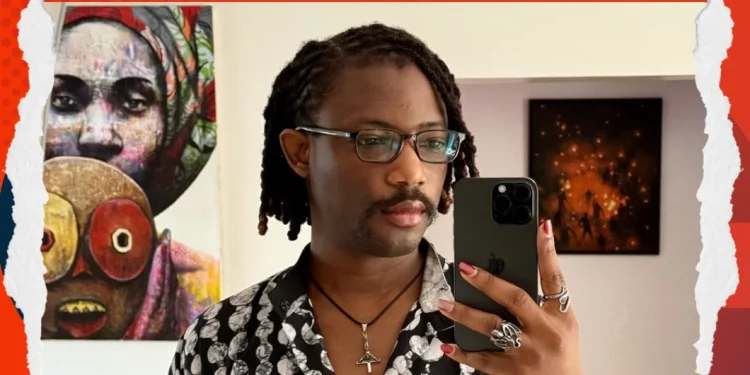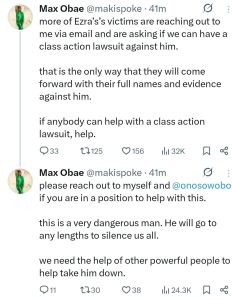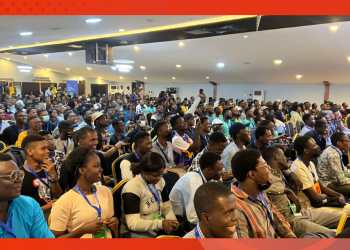The scandal surrounding Ezra Olubi, Paystack co-founder and former CTO, has escalated into an imminent class action lawsuit, threatening a major legal and corporate fallout for the executive and his parent company, Stripe. Following his suspension by Paystack on the morning of Friday, November 14, 2025, Olubi’s original accuser, Amaka Odeluga Obae (known as MakiSpoke), has moved decisively to organize the lawsuit, confirming that multiple victims are reaching out to join the legal challenge.
The development confirms that the narrative has permanently shifted from a social media scandal to a systemic legal threat, demanding urgent attention from the highest levels of corporate governance.
Coalition of Victims
The central development is the immediate effort to consolidate the claims against Olubi. Amaka Odeluga Obae, who first ignited the controversy in a viral Twitter Space, is now publicly gathering multiple victims who have reached out to her via email.
- Victims Mobilized: Amaka Obae confirmed that multiple alleged victims are seeking a collective legal path. The class action structure is viewed as the only viable way for these individuals to pursue justice against a figure with immense corporate power, offering necessary financial and legal shielding.
- Targeting Systemic Abuse: The legal action aims to challenge Olubi’s alleged pattern of abuse, which includes sexual misconduct with a subordinate, systemic misogyny, and contempt for underprivileged workers. The class action seeks to prove that Olubi’s alleged conduct was not isolated but part of a systemic misuse of his executive power, a critical issue for a company handling sensitive financial operations.
The move comes even as the initial narrative against Amaka that her claims were those of a “woman scorned” or a “career assassination” plot fueled by an over-dependence on LLM analysis for early evidence has been entirely overshadowed by Olubi’s own deleted, damning digital history.
Global Precedent and Nigerian Law: The Shadow of Epstein
Legal commentators are drawing distinct parallels between the looming suit against the Paystack executive and the landmark class actions filed against financial institutions connected to the late sex offender, Jeffrey Epstein. While the lawsuits were not directly against Jeffrey Epstein himself (as he died in 2019), significant class-action lawsuits against financial institutions connected to his sex trafficking ring have been successful in securing hundreds of millions of dollars in settlements for his victims.
Major settlements have included:
- JPMorgan Chase & Co.: The bank agreed to a $290 million settlement in a class-action lawsuit brought by dozens of Epstein’s victims. This settlement received final court approval in November 2023. JPMorgan also settled a separate lawsuit with the U.S. Virgin Islands for $75 million.
- Deutsche Bank: The bank agreed to a $75 million settlement in a similar class-action lawsuit filed by Epstein’s accusers. This settlement also received final approval from a U.S. judge in October 2023.
- Jeffrey Epstein’s Estate: The U.S. Virgin Islands reached a settlement of over $105 million with Epstein’s estate in November 2022.
These legal actions focused on the role of the banks in “knowingly benefit[ing] from participating in a sex-trafficking venture” by handling Epstein’s finances and ignoring internal red flags. The successful outcomes have been hailed as “historic,” signaling that financial institutions have a responsibility to detect and prevent human trafficking. The Olubi lawsuit may similarly seek to determine the corporate liability of Stripe (Paystack’s parent company) in failing to detect or halt the alleged misconduct of one of its highly compensated executives.
Navigating the Nigerian Legal System:
While there is no single principal law governing class actions in Nigeria, the procedure is permissible under the Civil Procedure Rules of various High Courts. Since the allegations involve employment and power dynamics, the National Industrial Court of Nigeria (NICN) rules, which allow for collective action in labour matters, could be highly relevant.
Paystack Suspension and Corporate Liability
Paystack confirmed Olubi’s immediate suspension on the morning of Friday, November 14, 2025, stating that the executive was removed from all duties pending an independent investigation. The pressure on Paystack and Stripe remains immense.
The executive’s national honor, Officer of the Order of the Niger (OON), which he received in 2022, adds a layer of national embarrassment to the corporate crisis. The suspension is the first critical step toward fulfilling the company’s fiduciary duty to its stakeholders.
The public is watching closely to see the nature of the independent investigation and, more importantly, what will be Paystack and Stripe’s ultimate response. The legal threat of a class action suit now forces the global payment giant to confront a deep-seated ethical failure within its subsidiary. The decision they make will set a major precedent for corporate governance across the African tech ecosystem.
READ ALSO: Paystack Suspends Co-Founder Ezra Olubi After Sexual Misconduct Allegation

















